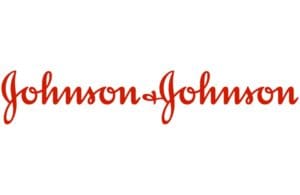 Johnson & Johnson (NYSE:JNJ) announced results from its COVID-19 vaccine trial that show decreased effectiveness against new virus variants.
Johnson & Johnson (NYSE:JNJ) announced results from its COVID-19 vaccine trial that show decreased effectiveness against new virus variants.
The vaccine candidate from Johnson & Johnson’s Janssen Pharmaceutical Companies, which was 66% effective overall in preventing moderate to severe COVID-19 28 days after vaccination, proved less effective in South Africa, where a new variant of the virus has appeared, offering just 57% protection from moderate-to-severe infection there (where 95% of cases were due to infection from the variant). The level of protection in the U.S. was 72% and it was 66% in Latin America.
“These results are a testament to the extraordinary efforts of everyone involved in our COVID-19 vaccine candidate clinical program, and we are extremely grateful to the clinical trial staff and trial participants for their invaluable contributions,” Janssen R&D global head Dr. Mathai Mamment said in a news release. “Changing the trajectory of the pandemic will require mass vaccination to create herd immunity, and a single-dose regimen with fast onset of protection and ease of delivery and storage provides a potential solution to reaching as many people as possible. The ability to avoid hospitalizations and deaths would change the game in combating the pandemic.”
Less protection against the variants that continue to appear across the world has caused concern, with Moderna observing a sixfold reduction in neutralizing antibodies that its COVID-19 vaccine produces against the South African variant compared to earlier strains. However, Moderna still expects the two-dose regimen of its vaccine to be protective against emerging strains detected to date.
Novavax (NSDQ:NVAX) also recently released data for its Phase 3 COVID-19 vaccine trial (in the United Kingdom), revealing 89.3% efficacy. However, its Phase 2b trial in South Africa revealed 60% efficacy against the variant.
Data for Johnson & Johnson’s Phase 3 Ensemble clinical trial for the single-dose vaccine candidate showed that the study met all primary and key secondary endpoints. The data collected was based on 43,783 participants accruing 468 symptomatic cases of COVID-19. Onset of protection was observed as early as day 14.
The candidate demonstrated 85% effectiveness in preventing severe disease across all regions studied at 28 days post-vaccination in all adults 18 years and older. Efficacy against severe disease increased over time with no cases in vaccinated patients reported after day 49. Severe COVID-19 was defined by laboratory-confirmed SARS-CoV-2 and one or more cases of the following: signs consistent with severe systemic illness, admission to an intensive care unit, respiratory failure, shock, organ failure or death, among other factors.
Moderate disease included laboratory-confirmed infection and one or more of the following: evidence of pneumonia, deep vein thrombosis, shortness of breath or abnormal blood-oxygen saturation above 93%, abnormal respiratory rate or two or more systemic symptoms suggestive of COVID-19.
“Johnson & Johnson embarked on the global effort to combat the COVID-19 pandemic a year ago, and has brought the full force of our capabilities, as well as tremendous public-private partnerships, to enable the development of a single-shot vaccine,” Johnson & Johnson chairman & CEO Alex Gorsky said. “Our goal all along has been to create a simple, effective solution for the largest number of people possible, and to have maximum impact to help end the pandemic. We’re proud to have reached this critical milestone and our commitment to address this global health crisis continues with urgency for everyone, everywhere.”
Trial participants of the Ensemble study will continue to be followed up with for up to two years to assess safety and efficacy, with data subject to be updated. Johnson & Johnson plans to submit the available data to a peer-reviewed journal in the coming weeks.